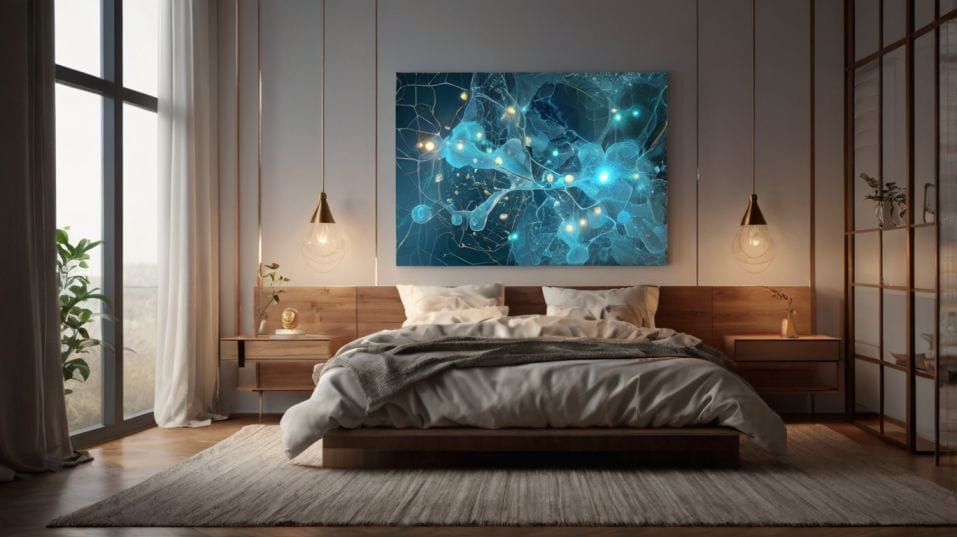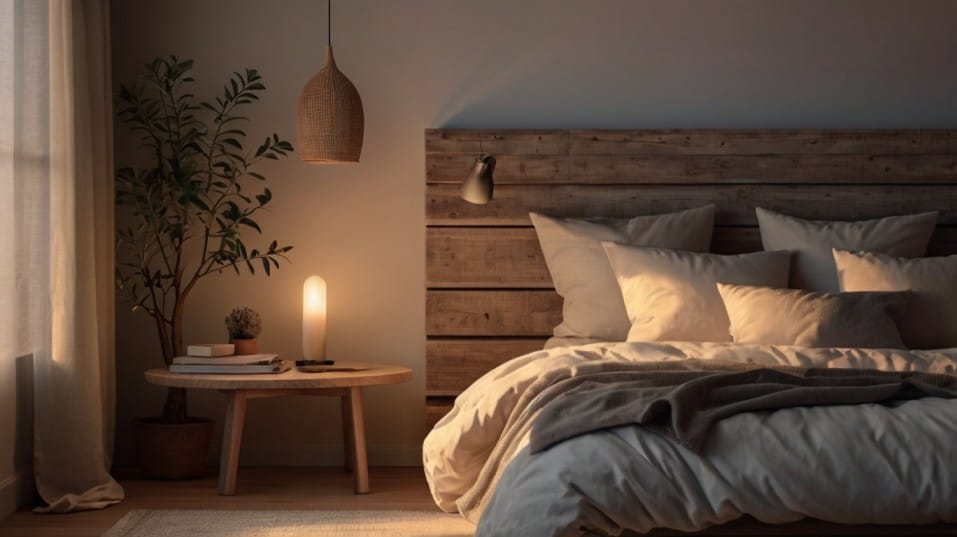Can Hormonal Imbalance Cause Sleep Problems?
Tired of tossing and turning? Learn how to fix sleep at the source by working with your hormones—naturally, simply, and for good.

Struggling to fall asleep even when you think you're doing everything right? Your hormones might be running the show behind the scenes.
Sleep isn’t just about routine—it’s about rhythm, and that rhythm is controlled by powerful chemical signals. When even one gets out of line, sleep suffers.
But here’s the good news: you can train your body to fall asleep faster and stay asleep longer—by syncing with your biology, not battling it.
How Hormones Impact Your Sleep Cycle
Sleep isn’t just about feeling tired—it’s about timing. Your body runs on an internal 24-hour rhythm known as the circadian cycle. That rhythm is driven by hormones, and if any of them go off-script, your sleep pays the price.
Cortisol: The Unsuspecting Sleep Saboteur
Cortisol gets a bad rap as the “stress hormone,” but it’s also the one that wakes you up in the morning. It should be high when the sun comes up, then taper off as the day winds down.
But stress, poor diet, late-night screen time, and irregular sleep can throw that off. If cortisol stays high into the evening, your brain doesn’t get the memo that it’s time to power down. You feel wired but tired—a classic sign of rhythm disruption.
Even worse, elevated nighttime cortisol can suppress melatonin production. That means even if you’re tired, your body’s not releasing the chemical cues that ease you into sleep.

Melatonin: Your Built-In Sleep Signal
Melatonin is often marketed as a supplement, but it’s a natural hormone your brain makes when it gets dark. It tells your body it's time to rest.
The problem? Melatonin is incredibly sensitive to light. Blue light from phones, laptops, or overhead LEDs can delay melatonin production by hours.
So, if you’re working under bright lights until 10 p.m. or scrolling your phone in bed, your brain thinks it’s still daytime.
Your natural sleep window gets pushed back, and you end up tossing and turning while your internal clock is still trying to catch up.
Estrogen and Progesterone: A Delicate Sleep Balance
In women, hormonal shifts across the menstrual cycle, pregnancy, or perimenopause can cause serious sleep disruptions.
Estrogen helps regulate serotonin, a mood stabilizer that also plays a role in melatonin production. It also helps keep body temperature in check—critical for staying asleep.
Progesterone, on the other hand, has a calming effect on the brain. It promotes deeper, more restful sleep.
When these hormones drop—right before your period, after childbirth, or during menopause—you may notice sleep becomes lighter, more fragmented, and harder to come by.
Testosterone: Not Just About Muscle
Men with low testosterone often experience poor sleep quality, reduced deep sleep, and more nighttime awakenings. Deep sleep is when your body recovers, repairs muscle, and balances brain chemistry.
If you’re waking up foggy, moody, or sluggish despite a full night in bed, low testosterone might be in play. And it’s a two-way street: poor sleep can lower testosterone, creating a frustrating loop.
Real-World Ways to Rebalance Hormones for Better Sleep
Let’s be clear—resetting your hormones doesn’t require a 30-day detox or a dozen new supplements. Most of the shifts happen through smarter, consistent daily habits that tell your body what time it is, and what it should be doing.
Sync Your Sleep and Wake Time
Your body craves rhythm. Going to bed and waking up at the same time every day—even on weekends—helps regulate melatonin and cortisol.
When those hormones are in sync, your body knows when to wind down and when to rise. This isn’t about being rigid—it’s about giving your biology a fighting chance.
Use Light Like a Reset Button
Natural light is the fastest way to reset your circadian clock. Get outside within an hour of waking up.
Just 10–15 minutes of morning sunlight can cue your brain to boost serotonin, lower cortisol at night, and naturally raise melatonin later in the day.
At night, flip the script. Dim the lights an hour before bed. Swap your phone for a book or podcast. If you’re working late, use warm-tone lighting and screen filters to reduce blue light exposure.
Train, Don’t Drain
Exercise has a direct impact on hormone regulation. It helps reduce stress hormones like cortisol, increases testosterone, and improves deep sleep.
You don’t need to crush a 90-minute workout—just move regularly. Resistance training a few times a week and daily walking is enough to keep your hormones in flow and your sleep on point.
Fuel Smart for Hormonal Support
The right foods can reinforce your body’s natural rhythm. Prioritize whole foods that support hormone production and balance: healthy fats (avocados, nuts, olive oil), quality protein, fiber, and magnesium-rich greens.
Cut back on ultra-processed junk and late-night snacking, which can spike insulin and throw off cortisol and melatonin.
If you drink caffeine, keep it to the morning. Caffeine has a half-life of 5–6 hours, and lingering stimulation can block deep sleep even if you fall asleep easily.
Create a Wind-Down Cue
Your body needs signals that it’s safe to switch into rest mode. That doesn’t mean meditating for an hour (unless you want to).
It could be a hot shower, slow breathing, light stretching, or simply shutting off email and notifications. The point is to shift your nervous system out of high alert.
Once cortisol drops, melatonin can rise, and sleep becomes something you slide into—not struggle for.
Final Thoughts: Reset Your Sleep, Rebuild Your Energy
Hormones quietly shape the way you sleep, but they’re not out of your control. Once you learn how to work with your body’s natural rhythm—through light, movement, timing, and nutrition—sleep improves without effort.
More energy in the morning. Better focus all day. Deeper recovery at night. This is how sleep should feel.
Start now. Step outside in the morning. Set a realistic bedtime and stick to it. Eat clean, move daily, and power down before bed. These aren’t hacks—they’re your biology. Use them. Your sleep will follow.




